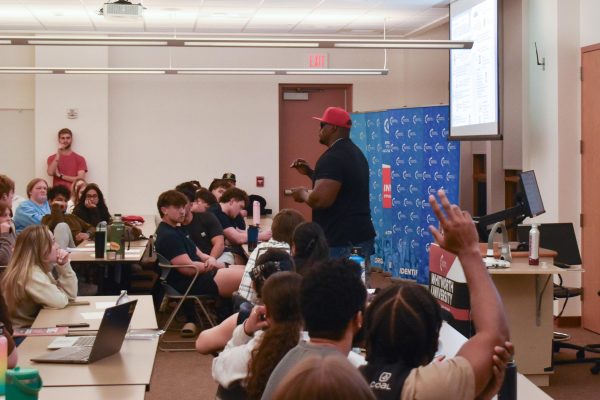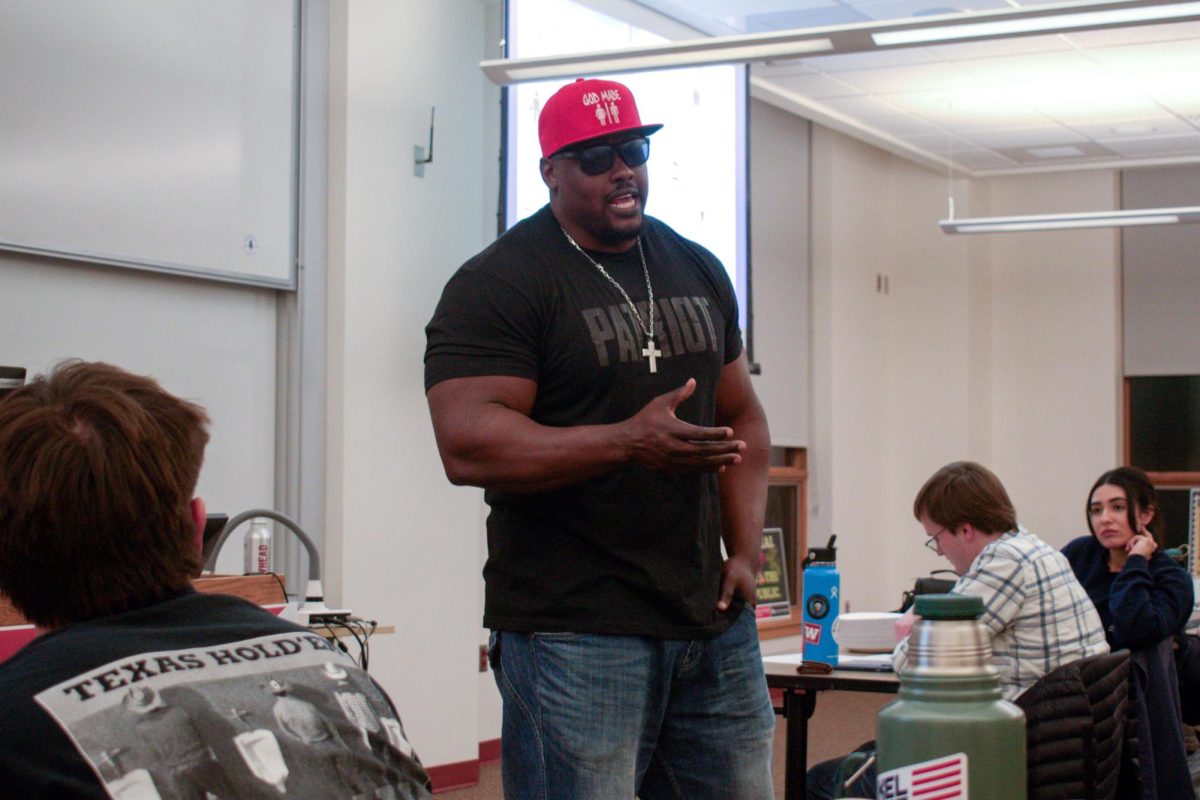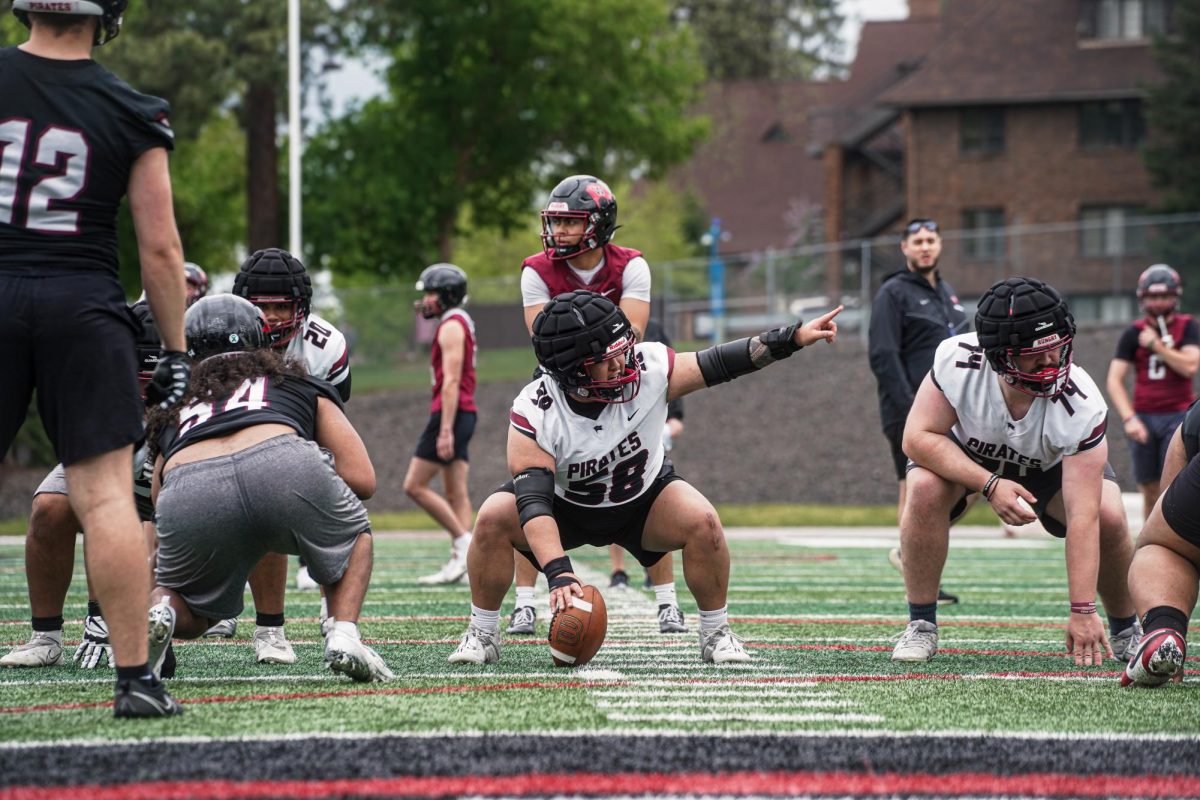Whitworth’s chapter of Turning Point USA (TPUSA) brought TPUSA speaker Stephen Davis to campus on Thursday, March 6, to speak to students about Critical Race Theory (CRT). The event, titled “The CRT Con,” defined terms used in the presentation, the impact of Critical Race Theory and why it was a “con.”
Students from across campus came to Davis’ event. Eli Roberts, the Boppell Senator, said, “I came specifically today because I had a tough vote with my constituency to bring Stephen Davis to campus. I personally was not for Stephen Davis to come to campus.”
Some students explain their reasons for attendance and interest in the topic. Sophie St. Jacques said, “I kind of came because I think these conversations are important to have.” Charis Anne Tiamson came to the event as an international student “just trying to learn about American issues.”
Davis started his presentation by identifying CRT’s connection to Marxism. Davis defined Marxism as an “oppressor/oppressed dichotomy in relation to class struggle” with a goal to “raise class consciousness.” He then defined Critical Race Theory (CRT) using Richard Delgado and Jean Stefancic’s book “Critical Race Theory: An Introduction” as a “movement collectivists of activists and scholars studying and transforming power, race and racism.”
Davis then argued against the implications of CRT, saying that CRT advocates like Ibram X. Kendi would push a “dictatorship of antiracism.” Anti-racism, as defined by Davis, is “racial justice/those who advocate for racial justice,” also known as “woke.”
Davis argued that CRT draws unnecessary attention to race and that it should be called Culturally Accepted Racism (CAR) instead. He concluded that CRT is using racism to fight racism, ultimately making the problem worse. Davis asserted that if you’re looking through a lens of problems, which he defined as looking through a CRT lens, then you’ll find problems and create them. Thus, CRT is “a con.”

Davis then opened the floor to a Q&A session.
Tiamson was not satisfied with the Q&A session. “To some degree, I did not get my questions answered, which was very unfortunate,” Tiamson said.
In an interview with The Whitworthian after the event, Davis said that students looking to read more about CRT should look at “Dr. James Lindsay, first and foremost, because he has been a great authority on this subject.”
“Dr Carol Swain, she writes a good book as well. It was more introductory,” Davis said. “So, if you want to get your feet wet into critical race theory, Black Eye for America, I think it’s phenomenal, just to get the basic understanding.”
When talking about CRT, Davis encourages students to “have the conversation, but you have to do the actual research and see what it is that these people are saying.” Davis urges students to understand the quotes and the information going into these conversations.
“There was a lot of differing opinions. I mean, people from both sides were here tonight, and I believe that all of them did feel heard,” Roberts said.
Bree Pollack, the president of Whitworth’s chapter of TPUSA, said, “The conservative students, they felt heard, and then also the not conservative people asked questions and I felt like it was generally good conversation.”
“I think, at the end of the day, no matter how uncomfortable conversations are, that we have, I think it’s important to have them and it’s important to have them respectfully, and I think in a way that did occur tonight,” St. Jacques said.
Tiamson said, “But I think for now, I’m glad that this is a start for us to really, you know, ask questions and see more of the perspective.”











